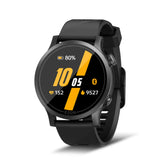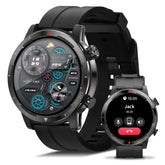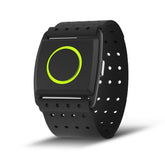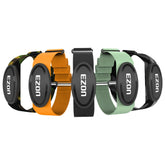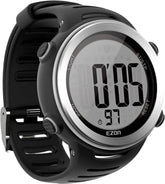Find Your Perfect accurate heart rate monitor for Ultimate Fitness
Finding an accurate heart rate monitor is crucial for tracking your progress and achieving ultimate fitness. Whether you're a runner, cyclist, or gym enthusiast, having reliable data can make all the difference.
Why Accuracy Matters in Heart Rate Monitors
An accurate heart rate monitor provides dependable data that helps tailor your workouts effectively. When choosing a device, ensure it offers consistent performance across various activities. This ensures your training stays within target zones for maximum benefit.
For example, athletes often rely on these devices to track their heart rate variability (HRV) during intense sessions. A most accurate HRV monitor can offer deeper insights into recovery needs and stress levels.
How Accuracy Impacts Performance
Precision in heart rate monitoring allows users to avoid overtraining while ensuring they push hard enough to improve endurance. It also aids in preventing injuries by signaling when rest is necessary.
Key Features of Reliable Devices
Reliable monitors come equipped with advanced sensors and algorithms designed for accuracy. Look for models validated through rigorous testing, such as those used in clinical settings.
Types of Heart Rate Monitors
Heart rate monitors come in different forms, each suited to specific preferences and activities. Understanding the types available will help you choose the best fit for your lifestyle.
Chest Strap Monitors
Chest strap monitors like the EZON ECG Heart Rate Monitor Belt C009Pro are known for their precision. They use electrodes to measure heart rate accurately, making them ideal for high-intensity workouts.
Wrist-Based Monitors
Wrist-based monitors integrate into smartwatches and fitness trackers. While slightly less accurate than chest straps, they offer convenience and continuous wearability.
Selecting the Right Monitor for Your Needs
Choosing the right heart rate monitor depends on your specific requirements and activities. Consider factors such as comfort, battery life, and additional features when making your decision.
Comfort and Fit
A comfortable fit ensures uninterrupted focus during workouts. Adjustable straps and lightweight materials contribute significantly to user satisfaction.
Battery Life
- Opt for monitors with extended battery life to reduce interruptions.
- Check charging times and indicator features for added convenience.
Additional Features to Enhance Your Experience
Beyond basic functionality, many monitors offer extra features that enrich your fitness journey. These include waterproofing, GPS tracking, and integration with fitness apps.
Waterproofing
For swimmers, waterproof monitors are essential. They allow you to track your heart rate even underwater, providing comprehensive data for all your activities.
App Integration
Monitors compatible with popular fitness apps enable seamless data syncing. This allows you to access detailed insights and track progress over time.
Conclusion: Finding Your Ideal Heart Rate Monitor
In conclusion, selecting an accurate heart rate monitor involves evaluating several key factors. Prioritize accuracy, comfort, and additional features that align with your fitness goals. Whether you opt for a chest strap or wrist-based model, ensure it meets your specific needs.
Remember, consistency in tracking leads to better results. An accurate heart rate monitor empowers you to optimize your workouts and reach peak performance efficiently.
Frequently Asked Questions (FAQ)
Here are some common questions about heart rate monitors to help clarify any doubts you may have.
What is HRV Monitoring?
HRV (Heart Rate Variability) monitoring tracks changes in time intervals between heartbeats. It reflects autonomic nervous system activity and overall health.
How Often Should I Replace My Heart Rate Monitor?
The lifespan of a heart rate monitor varies based on usage and care. Generally, replacing every 2-3 years ensures optimal performance and access to newer technologies.
